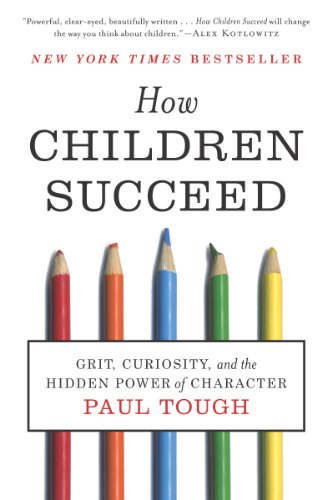Overview of How Children Succeed: Grit, Curiosity, and the Hidden Power of Character by Paul Tough Link to heading
Summary Link to heading
How Children Succeed by Paul Tough explores the factors that contribute to children’s success, challenging the traditional focus on cognitive intelligence and academic skills. The book shifts the conversation towards non-cognitive traits such as grit, curiosity, resilience, and character. Through a combination of research and storytelling, Tough examines how these qualities play a fundamental role in helping children overcome adversity and achieve success.
Tough delves into various educational settings and social contexts, highlighting how character development can be nourished in children. He draws on psychological and neuroscientific studies to argue that traits like perseverance and self-control are more predictive of success than IQ. The narrative intertwines inspiring stories of students, educators, and communities that illustrate the transformative effects of fostering character in education.
Review Link to heading
How Children Succeed has been praised for its engaging narrative style and thought-provoking ideas that challenge conventional wisdom about education and success. Paul Tough effectively uses real-life examples to humanize the research, making the book accessible and relatable. One strength is its compelling argument for the importance of non-cognitive skills, alongside a critique of systems that prioritize test scores over character building.
Some critiques of the book include a lack of focus on systemic issues that contribute to educational disparities and a tendency to underplay the socio-economic factors that affect children’s development. Despite these criticisms, the book has been influential in education and psychology circles, encouraging a broader approach to understanding success.
Key Takeaways Link to heading
- The Importance of Character: Traits like grit, curiosity, and resilience are critical for success and can be cultivated over time.
- Role of Adversity: Facing and overcoming challenges can strengthen character and improve long-term success prospects.
- Impact of Environment: Supportive environments, be it at home, school, or community, play a crucial role in developing character.
- Critique of Test-Driven Education: Solely focusing on academic measures like IQ and test scores is an incomplete approach to predicting success.
- Holistic Development: Success is multifaceted, involving emotional health, interpersonal skills, and character, along with academic abilities.
Recommendation Link to heading
How Children Succeed is recommended for educators, parents, policymakers, and anyone interested in child development and education. It provides valuable insights into the non-cognitive factors that drive success, encouraging readers to reconsider traditional metrics of achievement. Those looking to understand how character and environment impact children’s growth will find this book particularly enlightening.
